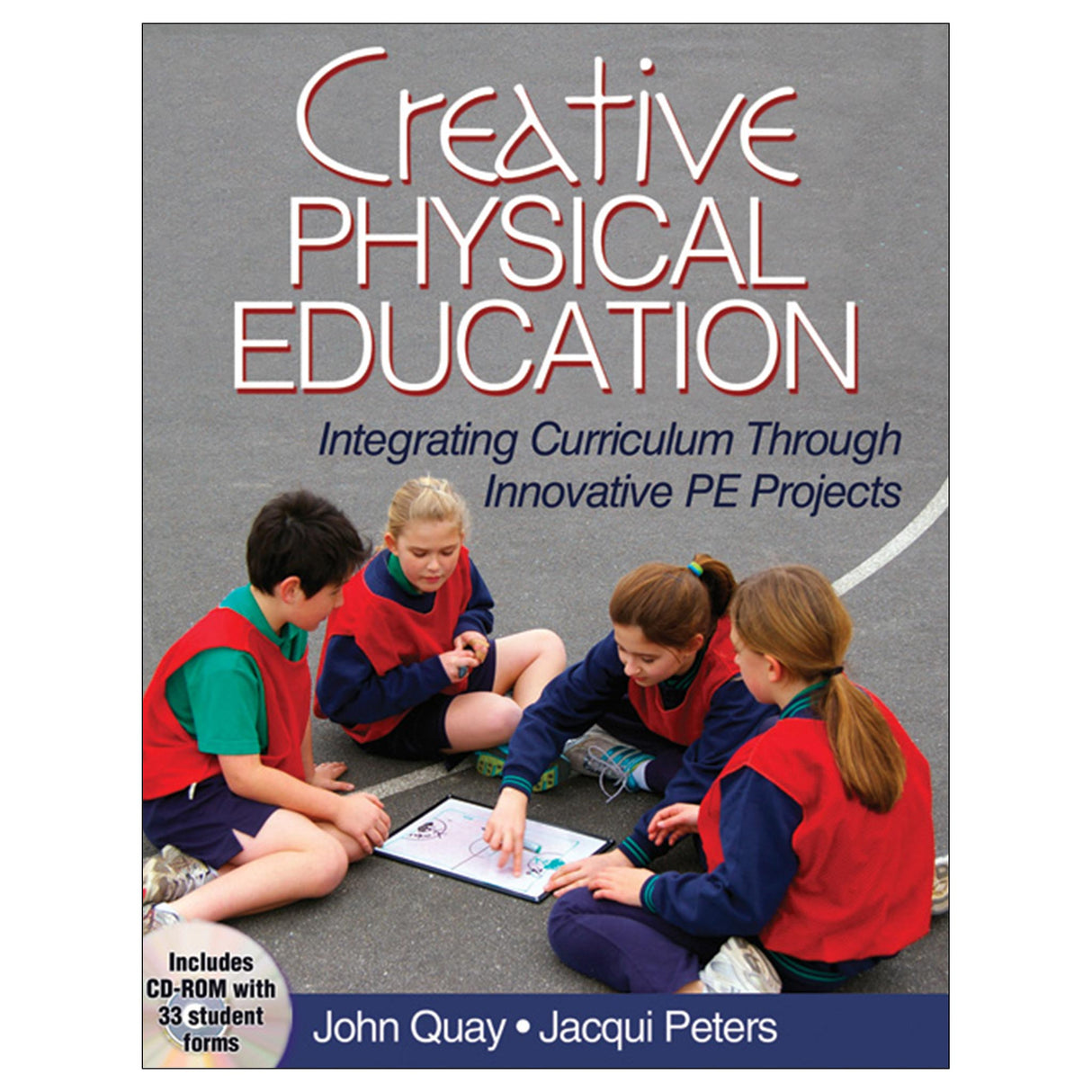Creative Physical Education PDF
Integrating Curriculum Through Innovative PE Projects
Author: John Quay, Jacqui Peters
$27.95 CAD
Access Duration: 10 Years
Creative Physical Education offers a flexible extended learning experience for children and teens that focuses on physical, cognitive, and interpersonal knowledge and skill development. A combination teacher’s guide and student workbook, Creative Physical Education has everything you need, including a CD-ROM of printable and adaptable class materials.
Creative Physical Education presents a project framework that you can adapt to fit the needs of your class. Great for physical education teachers looking for a fresh approach, Creative Physical Education also makes an excellent structured project for classroom teachers working with physical education.
Creative Physical Education begins with a teacher’s guide that details the underlying pedagogical models behind the project. Rather than focusing on one approach, Creative Physical Education integrates a number of pedagogical models and describes how these can be combined to form a creative PE project. This all-in-one resource includes a student workbook with all the worksheets needed for each part of the project. The project worksheets are included on the accompanying CD-ROM and can be modified as needed and printed for use. In addition, homework items offer ways to reinforce concepts learned in class.
Creative Physical Education progresses students through team building, game creation, organizing a season, and practicing skill development. In the first part of the project, you’ll help students discover the essentials of working in teams, the benefits of a team approach, and characteristics of successful teams.
The developing teams will then create their own games. Creative Physical Education provides you with all the necessary tools and ideas for this task. Through this section, the student teams discuss the ingredients of a game, plan their own team game, and teach it to other teams. The students are also involved in evaluating and reflecting on the games of others. After this, you’ll help students use their games to create one game for the whole class, which they play over the course of a larger-scale sporting season. Through regular participation, students improve their knowledge and skills and learn the strategies of their game. This section of the project also helps students experience a range of roles, always as a member of a team.
In the final section you’ll help students improve their tactics and skills through practice. By critically assessing the teamwork, skill, strategy, and fitness requirements of their particular game, students learn how to improve their individual and team performance. Activities in this final part also allow students to celebrate their success and reflect on their project.
This student-directed creative PE project offers students a new way to enjoy and learn from sport while also offering the possibility of integrating other curriculum areas with physical education. With step-by-step guidance and a full set of class materials, you’ll have everything you need to implement a fun, creative learning experience for your class. Find new ways to move, create, and collaborate with Creative Physical Education.
Part I. Teacher’s Guide
Chapter 1. Team
Team Selection and Affiliation
Being a Teammate
The Five Levels of Being a Teammate
Teammateship Role Plays
Chapter 2. Game
What Is a Game?
The Ingredients of Games
The Challenges of Creating and Designing Games
Getting to the One Class Game
Chapter 3. Season
Fairness and Competition
Various Forms of Season
A Round Robin With Finals
Chapter 4. Practice
Game Tactics
Game Skills
Game Skill Analysis and Feedback
Game Fitness
Game Statistics
Celebration
Part II. Student Workbook





